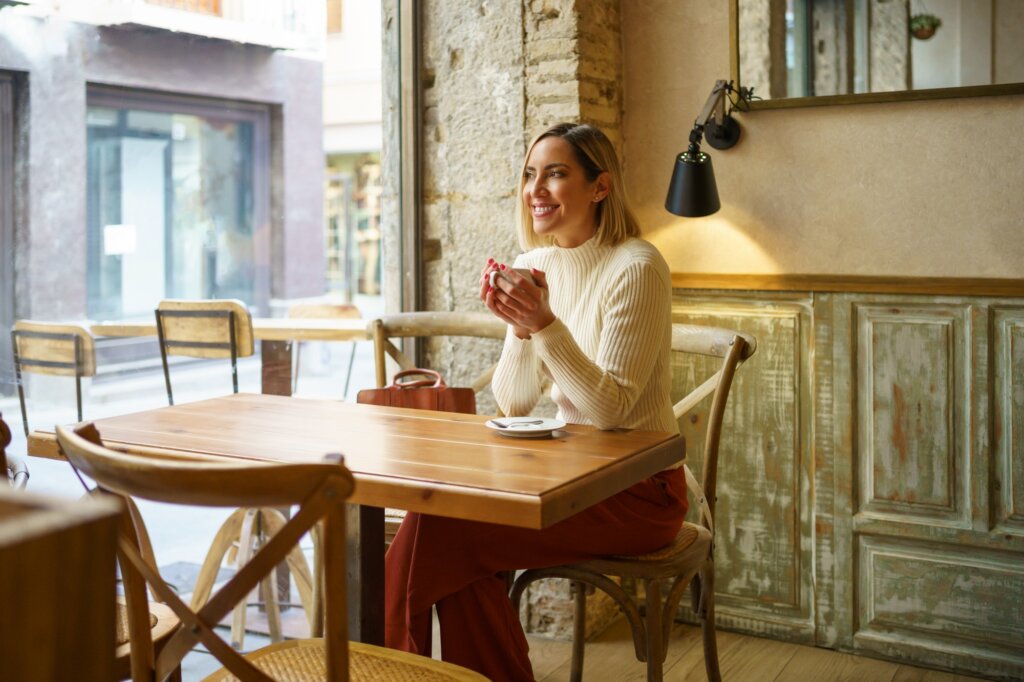From coffee shops to community gardens, bookstores to climbing gyms, third places are becoming one of the most searched and discussed lifestyle trends of 2025. And with good reason: they may be the social glue we didn’t realise we were missing.
🌎 What Is a Third Place, Really?
Third places aren’t new. In fact, they’ve always existed — pubs, barber shops, parks, libraries, and cafes have long served as neutral social grounds. But what’s changed is how urgently we need them.
Oldenburg argued that these spaces help build civic identity, foster belonging, and provide the casual interactions that create trust. They’re unstructured, welcoming, and open to all. And in an era when loneliness has been dubbed a public health crisis by the World Health Organization, their relevance has only intensified.
According to a 2023 Good Trade survey, more than 60% of people said they wished they had more places outside of home or work to simply “be.”
📊 The Search for Belonging in a Post-Pandemic World
The pandemic shattered many people’s routines — and with it, their social rhythms. Office watercooler chats, gym classes, after-work drinks: gone overnight. While some routines returned, many haven’t.
This is reflected in data. Google Trends shows that global search interest in terms like “community space” and “third place” has surged since 2021. In the UK alone, interest has grown steadily, with 2025 seeing the highest levels of search traffic to date.
Meanwhile, the Office for National Statistics reported that nearly half of UK adults feel less connected to their communities than they did in 2019.
🏠 Today’s Third Places Are More Creative Than Ever
While traditional pubs and cafes still hold space, a new wave of modern third places is flourishing:
- Cafes with no-WiFi hours to encourage conversation
- Multi-use creative studios hosting everything from pottery nights to poetry slams
- Libraries reimagined as learning lounges with beanbags and mental health resources
- Gardening co-ops and urban farms that double as event venues
- Gaming bars and bookshops that blur the line between hobby and community
- Floating community centres in canal boats (yes, really)
These spaces often operate under community-first or hybrid business models. Some are non-profits; others are revenue-generating social hubs that prioritise comfort over commerce.
🚀 Why Gen Z & Millennials Are Leading the Shift
Younger generations are fuelling this resurgence. Gen Z is the most digitally connected — and socially isolated — generation in history. A 2024 King’s College study found that 56% of Gen Z feel regularly disconnected, even in shared spaces.
For them, third places are more than aesthetic hangouts. They’re safe spaces to find identity, decompress, and unplug from the performative nature of digital life.
The best part? Third places are often free, non-judgmental, and intergenerational. You can strike up a conversation with a stranger over chess, or just sit quietly with your oat milk latte and exist. No pressure. No scroll.
🌱 Urban Design Is Catching On
City planners are starting to view third spaces as public infrastructure. Cities like Manchester, Leeds, and Brighton are investing in community hubs, mobile libraries, and even art buses that bring third-place energy to underserved areas.
Real estate developers are also baking in third-space thinking: adding lounges, co-working nooks, dog-friendly courtyards, and flexible event spaces to both residential and commercial builds. Because today, community isn’t a luxury. It’s a necessity.
📍 Finding Your Third Place
So where do you start? Your third place doesn’t need to be trendy, polished, or even Instagrammable. It just needs to feel human.
Ask yourself:
- Where do I feel most like myself?
- Where do I go that isn’t about spending, working, or achieving?
- Where can I show up alone — and still feel connected?
That might be a plant shop that hosts Sunday coffee tastings. A community centre with tai chi and free art nights. Or even a quiet stretch of park bench where the same faces walk by every week.
🌟 Final Thought
In an age of ambient anxiety and digital overload, third places are quietly becoming one of the most important trends of the decade. They’re not just spaces — they’re lifelines.
And as the UK reimagines what community means in a mobile, screen-first world, maybe the answer isn’t another app.
Maybe it’s a place.
Exploring new neighbourhoods while on a contract job or short-term relocation? Nezt.co.uk helps you feel at home in over 150 UK locations.



